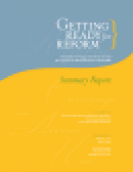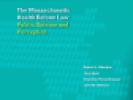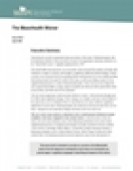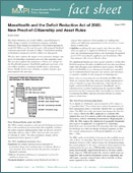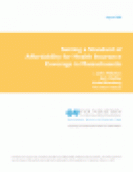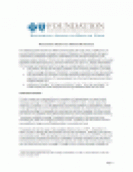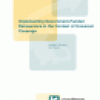The 2006 Massachusetts Health Reform Law: Progress and Challenges After One Year of Implementation
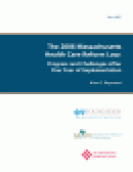
This report is an overview of the first year after implementation of the Massachusetts health reform law. It catalogs some of the most significant milestones and achievements and describes how policymakers, stakeholders, and the new Commonwealth Health Insurance Connector Authority and its Board managed a host of potentially contentious issues and decisions.



